

Breakthroughs and Discoveries in Psychological Science: 2020 Year in Review
- Psychological Science

Many of the major news stories of 2020 were closely tied to understanding human behavior, including efforts to contain the spread of COVID-19, understand political divides and social conflicts, and address enduring racial disparities and inequality.
A wealth of research published by the Association for Psychological Science (APS) addresses these and other important topics. The following is a selection of some of APS’s most newsworthy research and highly cited publications from 2020. These stories emphasize the importance of peer-reviewed psychological research and its impact on society.
Top 10 APS News Releases of 2020, Metrics Provided by Newswise

Romance, Scent, and Sleep: The Stuff that Dreams Are Made Of : Research published in the journal Psychological Science suggests that the scent of a romantic partner can improve your quality of sleep. This is true regardless of whether you are consciously aware that the scent is even present.

Violent Video Games and Aggression: The Connection Is Dubious, at Best : The coronavirus pandemic put a damper on many traditional summertime activities for kids, giving them more opportunity to socialize with friends virtually through online gaming. But many hours of extra screen time worried some parents, especially in light of a 2015 report linking violent video games with aggressive behavior in children. A reanalysis of previous findings published in the journal Perspectives on Psychological Science found no clear link between video game violence and aggression in children.

Stemming the Spread of Misinformation on Social Media : The dangers of COVID-19 could worsen if misinformation on social media continues to spread unchecked, according to research published in Psychological Science . Though there is no practical way to fully stem the tide of harmful misinformation on social media, certain tactics could help improve the quality of information that people share online about this deadly disease.

Psychological Science and COVID-19: Conspiracy Theories : Why are conspiracy theories so popular? Who believes them? Why do people believe them? What are some of the consequences of conspiracy theories, and can such theories be harmful? These questions are explored by Karen Douglas, professor of social psychology at the University of Kent, UK, whose research focuses on beliefs in conspiracy theories.

Pandemic Effects on Marriage and Relationships : Beyond its economic toll, COVID-19 is also having a negative impact on many relationships. Expert commentary from Paula Pietromonaco, professor emerita at the University of Massachusetts, Amherst, explores this facet of the pandemic and how interactions in marital and other close relationships shape each partner’s emotional and physical health.

Trigger Warnings Fail to Help and May Even Harm : A study published in the journal Clinical Psychological Science shines light on the value and potential harm of trigger warnings, the term used to alert readers or viewers to potentially unsettling content. This research suggests that trigger warnings offer little to no help in avoiding painful memories and can even be harmful for the survivors of past emotional trauma.
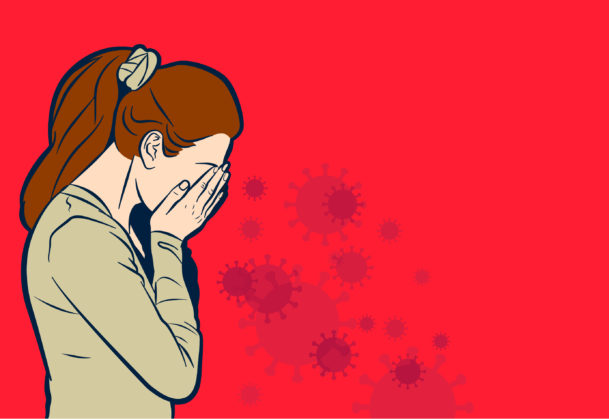
Contracting COVID-19: Lifestyle and Social Connections May Play a Role : Research published in Psychological Science indicates that unhealthy lifestyle choices, including smoking and lack of exercise, along with emotional stressors like social isolation and interpersonal conflicts are important risk factors for developing upper respiratory infections. It is possible these same factors also increase the risk of contracting COVID-19.
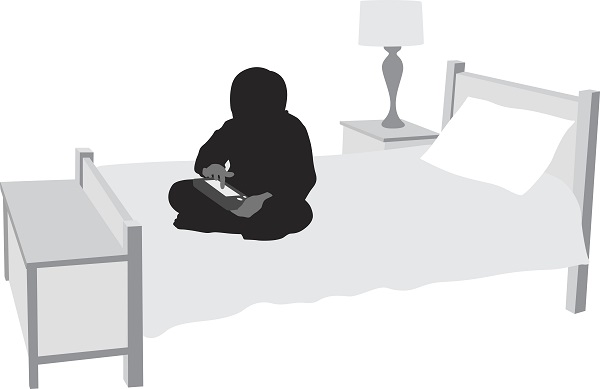
Does Bedtime Media Use Harm Children’s Sleep? Only If They Struggle to Self-Regulate Behavior : Throughout the COVID-19 pandemic, one concern for many parents has been the impact of additional TV or computer screen time on their children and their already disrupted sleep habits. A study published in Psychological Science found that media use in the hour preceding bedtime impacts the sleep only of children who struggle to self-regulate their behavior.
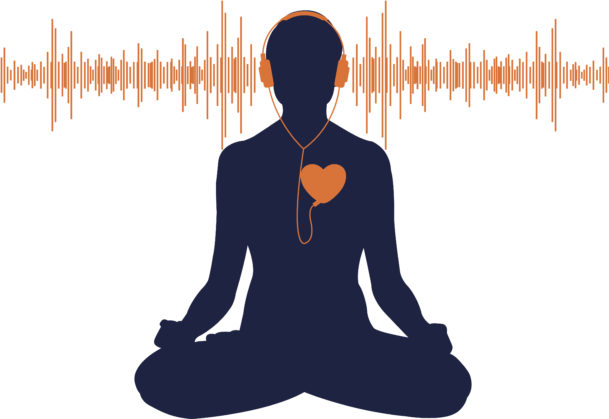
Health and Happiness Depend on Each Other, Psychological Science Says : This research adds to the growing body of evidence that happiness not only feels good, but it is also good for your physical health. Research published in Psychological Science shows that both online and in-person psychological interventions—tactics specifically designed to boost subjective well-being—have positive effects on self-reported physical health.

Claiming Journalism Is ‘Fake News’ May Satisfy a Personal Need for an Orderly World : Research published in Psychological Science reveals that the degree to which people level accusations of fake news against news outlets is at least partially associated with a personal need for an orderly and structured environment.
Top 10 APS Journal Articles Based on Altmetric Attention Scores
Aging in an Era of Fake News : Older adults appear to be particularly susceptible to misinformation (e.g., they shared the most fake news during the 2016 U.S. election). In Current Directions in Psychological Science , researchers suggest that social changes in late adulthood, including difficulty in detecting lies and less emphasis on accuracy when communicating, might be partly responsible for susceptibility to misinformation. Moreover, older adults are less experienced with social media and may struggle to evaluate the veracity of content. Interventions that take into account older adults’ social changes and digital literacy might help to reduce their susceptibility to fake news. Sex Differences in Mate Preferences Across 45 Countries: A Large-Scale Replication : Research published in Psychological Science seems to support the popular perception that men are more likely to prefer attractive young mates, and women are more likely to prefer older mates with financial prospects. These sex differences were universal across the 45 countries surveyed. In countries where gender equality was higher, both sexes appeared to have mates closer to their own age. Contrary to older studies, this study found that gender equality did not predict other differences in mate preferences, such as financial prospects. Also, different countries’ rates of communicable and infectious diseases did not predict sex differences or preferences.
What Is the Test-Retest Reliability of Common Task-Functional MRI Measures? New Empirical Evidence and a Meta-Analysis : The reliability of measuring brain activity using task functional MRI (fMRI) for predicting disease risk and outcomes appears to be low. In Psychological Science , researchers present a meta-analysis of prior research and an analysis of test-retest reliability of brain activity in certain regions across 11 common fMRI tasks. The authors found that reliability across studies was low, and test-retest studies did not reliably show activity in the same areas of interest for the same tasks. These findings suggest that current task-fMRI measures are not suitable for predicting clinical outcomes or studying individual differences. Racial Inequality in Psychological Research: Trends of the Past and Recommendations for the Future : Systematic inequality exists within psychological research. This is the conclusion researchers published in Perspectives on Psychological Science after querying more than 26,000 articles published between 1974 and 2018 in top-tier psychology journals. Most publications are edited by White editors, and the few publications that highlight race were written by White authors and had few participants of color. These findings suggest the need to diversify editing, writing, and participation in psychological science. To this end, the researchers provide a set of actionable recommendations for journals and authors.
Your Brain Is Not an Onion With a Tiny Reptile Inside : A paper in Current Directions in Psychological Science describes a model of neural evolution that challenges the widespread misconception that as vertebrate animals evolved, they added “newer” brain structures to the “older” existing ones, enabling them to have more complex psychological functions (e.g., language). Neurobiologists have long discredited this misconception that the reptile brain is still part of the human brain, which just added more layers. The authors provide examples of how this inaccurate view of brain evolution has impeded progress in psychology.
The Emotional Path to Action: Empathy Promotes Physical Distancing and Wearing of Face Masks During the COVID-19 Pandemic : Empathy for people most vulnerable to COVID-19 appears to motivate wearing face masks and practicing social distancing, according to an article published in Psychological Science . Participants who showed more empathy for the most vulnerable to the virus were more likely to report social-distancing practices. In two experiments, inducing empathy resulted in higher motivation to wear face masks and to practice social distancing than simply informing participants about the importance of these practices, in particular for those most vulnerable to the virus.
Fighting COVID-19 Misinformation on Social Media: Experimental Evidence for a Scalable Accuracy-Nudge Intervention : Nudging people to think about the accuracy of news headlines might be a simple way to improve their choices about what to share on social media. When directly asked about the accuracy of COVID-19-related news, participants in a study published in Psychological Science were better at discriminating between true and false than when asked simply to decide whether to share it. Similarly, having participants judge the accuracy of non-COVID-19-related headlines increased their discernment about the accuracy of COVID-19-related articles and the quality of their subsequent intentions to share them.
How Firm Are the Foundations of Mind-Set Theory? The Claims Appear Stronger Than the Evidence : Mind-set theory proposes that the beliefs one has about whether attributes are malleable ( growth mind-set ) or unchangeable ( fixed mind-set ) influence one’s motivation, type of goals, persistence, and resilience. Contrary to what the mind-set theory would predict, researchers publishing in Psychological Science tested 438 students and found weak associations (<.20) between mind-set, goal orientation, response to challenge, belief in effort, cognitive ability, and intelligence. The researchers suggest that these results may indicate that some claims about mind-set might be overstated.
The Future of Women in Psychological Science : A team of researchers analyzed 10 topics relevant for women’s professional prospects in psychological science: career advancement; financial compensation; service assignment and practices; lifestyle roles and work–family conflict; gender biases; prevalence and perceptions of positions of power; intersectionality; harassment and incivility; agency, self-esteem, and self-promotion; and lack of belonging. In Perspectives on Psychological Science , the authors discuss empirical evidence for each of these issues and clarify gender gaps and positive change in the hope that a better understanding of these issues will spark conversation and help to mitigate remaining gender differences in the field.
Can Bad Be Good? The Attraction of a Darker Self : We prefer fictional villains who are similar to us, according to research in Psychological Science . Researchers explored data from an online platform that allows users to become “fans” of characters and take a quiz to evaluate their similarity with them. Individuals preferred villains who were similar to themselves. A series of laboratory studies also found an association between similarity of negative traits, when the villain was fictional but not when the villain was a real person, and attraction to the villain.

Stories in Action
Stories may complement established policy tools. Walsh and colleagues define the elements of storytelling and discuss stories’ key features and functions, providing design principles for policymakers interested in building stories.

SAGE 10-Year Impact Awards Honor Two APS Articles
Two 2011 APS journal articles exploring the rise of Amazon Mechanical Turk (MTurk) and the risk of accepting false-positive findings have received SAGE Publishing’s third annual 10-Year Impact Awards.

Letter from the Editor: A New Chapter for the Observer
After nearly 40 years in print, the APS member magazine is going all-digital.
Privacy Overview
| Cookie | Duration | Description |
|---|---|---|
| __cf_bm | 30 minutes | This cookie, set by Cloudflare, is used to support Cloudflare Bot Management. |
| Cookie | Duration | Description |
|---|---|---|
| AWSELBCORS | 5 minutes | This cookie is used by Elastic Load Balancing from Amazon Web Services to effectively balance load on the servers. |
| Cookie | Duration | Description |
|---|---|---|
| at-rand | never | AddThis sets this cookie to track page visits, sources of traffic and share counts. |
| CONSENT | 2 years | YouTube sets this cookie via embedded youtube-videos and registers anonymous statistical data. |
| uvc | 1 year 27 days | Set by addthis.com to determine the usage of addthis.com service. |
| _ga | 2 years | The _ga cookie, installed by Google Analytics, calculates visitor, session and campaign data and also keeps track of site usage for the site's analytics report. The cookie stores information anonymously and assigns a randomly generated number to recognize unique visitors. |
| _gat_gtag_UA_3507334_1 | 1 minute | Set by Google to distinguish users. |
| _gid | 1 day | Installed by Google Analytics, _gid cookie stores information on how visitors use a website, while also creating an analytics report of the website's performance. Some of the data that are collected include the number of visitors, their source, and the pages they visit anonymously. |
| Cookie | Duration | Description |
|---|---|---|
| loc | 1 year 27 days | AddThis sets this geolocation cookie to help understand the location of users who share the information. |
| VISITOR_INFO1_LIVE | 5 months 27 days | A cookie set by YouTube to measure bandwidth that determines whether the user gets the new or old player interface. |
| YSC | session | YSC cookie is set by Youtube and is used to track the views of embedded videos on Youtube pages. |
| yt-remote-connected-devices | never | YouTube sets this cookie to store the video preferences of the user using embedded YouTube video. |
| yt-remote-device-id | never | YouTube sets this cookie to store the video preferences of the user using embedded YouTube video. |
| yt.innertube::nextId | never | This cookie, set by YouTube, registers a unique ID to store data on what videos from YouTube the user has seen. |
| yt.innertube::requests | never | This cookie, set by YouTube, registers a unique ID to store data on what videos from YouTube the user has seen. |
Identifiers
Linking ISSN (ISSN-L): 1046-1310
URL http://www.ingenta.com/journals/browse/tranpub/cpy
URL http://search.epnet.com/direct.asp?jid=CYP&db=afh
URL http://search.epnet.com/direct.asp?db=slh&jn=CYP&scope=site
URL http://www.springerlink.com/content/1046-1310
URL http://firstsearch.oclc.org
URL http://firstsearch.oclc.org/journal=0737-8262;screen=info;ECOIP
KEEPERS link https://archive.org/details/pub_current-psychology
Google https://www.google.com/search?q=ISSN+%221936-4733%22
Bing https://www.bing.com/search?q=ISSN+%221936-4733%22
Yahoo https://search.yahoo.com/search?p=ISSN%20%221936-4733%22
Pubmed https://pubmed.ncbi.nlm.nih.gov/?term=%221936-4733%22%5BJournal%5D&sort=
Library of Congress https://catalog.loc.gov/vwebv/search?searchCode=STNO&searchArg=1936-4733&searchType=1&limitTo=none&fromYear=&toYear=&limitTo=LOCA%3Dall&limitTo=PLAC%3Dall&limitTo=TYPE%3Dall&limitTo=LANG%3Dall&recCount=25
Resource information
Archival status.

Title proper: Current psychology.
Other variant title: Current psychology research & reviews
Other variant title: Current psychology research and reviews
Country: United States
Medium: Online
| Status | Publisher | Keeper | From | To | Updated | Extent of archive |
|---|---|---|---|---|---|---|
| Preserved | Springer | CLOCKSS Archive | 1981 | 2024 | 19/08/2024 | |
| Preserved | Springer Science & Business Media | Internet Archive | 1984 | 2009 | 26/04/2024 | |
| Preserved | Springer | LOCKSS Archive | 2008 | 2019 | 19/08/2024 | |
| Preserved | Springer | Library of Congress | 2018 | 2024 | 02/08/2024 | |
| Preserved | Springer Nature | National Digital Preservation Program, China | 1997 | 2023 | 17/07/2024 | |
| Preserved | Springer Nature | National Digital Preservation Program, China | 1997 | 2023 | 09/04/2024 | |
| Preserved | Springer | National Library of the Netherlands | 1997 | 2019 | 20/10/2023 | |
| Preserved | Springer | Portico | 1981 | 1982 | 28/04/2024 | |
| Preserved | Springer | Portico | 1981 | 1982 | 28/04/2024 | |
| Preserved | Springer | Portico | 1987 | 1988 | 28/04/2024 | |
| Preserved | Springer | Portico | 2008 | 2024 | 28/04/2024 | |
| Preserved | Springer | Scholars Portal | 2008 | 2024 | 02/04/2024 | |
Record information
Last modification date: 06/02/2021
Type of record: Confirmed
ISSN Center responsible of the record: ISSN National Centre for the USA For all potential issues concerning the description of the publication identified by this bibliographic record (missing or wrong data etc.), please contact the ISSN National Centre mentioned above by clicking on the link.
downloads requested
Discover all the features of the complete ISSN records
Display mode x.
Labelled view
MARC21 view
UNIMARC view
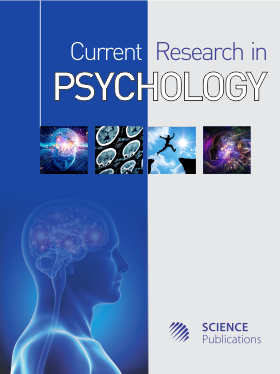
Current Research in Psychology
Aims and scope.
Current Research in Psychology (CRP) is an open-access, international, peer-reviewed journal in psychology intended to provide open access high-quality, current research in all areas of psychology. CRP aims to strengthen global dialog within psychology, increase communication among different areas of psychology, and foster collaborative research between different cultural backgrounds. CRP publishes empirical studies, theoretical papers, and critical reviews through both biannual and special editions. While focusing primarily on immediate application, we encourage research that may have later application in essential areas for human health, peace, and performance.
It is with great pleasure that we announce the SGAMR Annual Awards 2020. This award is given annually to Researchers and Reviewers of International Journal of Structural Glass and Advanced Materials Research (SGAMR) who have shown innovative contributions and promising research as well as others who have excelled in their Editorial duties.
This special issue "Neuroinflammation and COVID-19" aims to provide a space for debate in the face of the growing evidence on the affectation of the nervous system by COVID-19, supported by original studies and case series.
The SGAMR Editorial Board is pleased to announce the inauguration of the yearly “SGAMR Young Researcher Award” (SGAMR-YRA). The best paper published by a young researcher will be selected by a journal committee, from the Editorial Board.
- Recently Published
- Most Viewed
- Most Downloaded

PSYC 210: Foundations of Psychology
- Tips for Searching for Articles
What is a literature review?
Conducting a literature review, organizing a literature review, writing a literature review, helpful book.
- Avoiding Plagiarism
- Google Scholar

A literature review is a compilation of the works published in a particular field of study or line of research, usually over a specific period of time, in the form of an in-depth, critical bibliographic essay or annotated list in which attention is drawn to the most significant works.
- Summarizes and analyzes previous research relevant to a topic
- Includes scholarly books and articles published in academic journals
- Can be an specific scholarly paper or a section in a research paper
The objective of a Literature Review is to find previous published scholarly works relevant to an specific topic
- Help gather ideas or information
- Keep up to date in current trends and findings
- Help develop new questions
A literature review is important because it:
- Explains the background of research on a topic
- Demonstrates why a topic is significant to a subject area
- Helps focus your own research questions or problems
- Discovers relationships between research studies/ideas
- Suggests unexplored ideas or populations
- Identifies major themes, concepts, and researchers on a topic
- Tests assumptions; may help counter preconceived ideas and remove unconscious bias
- Identifies critical gaps, points of disagreement, or potentially flawed methodology or theoretical approaches
Source: "What is a Literature Review?", Old Dominion University, https://guides.lib.odu.edu/c.php?g=966167&p=6980532
1. Choose a topic. Define your research question.
Your literature review should be guided by a central research question. It represents background and research developments related to a specific research question, interpreted, and analyzed by you in a synthesized way.
- Make sure your research question is not too broad or too narrow.
- Write down terms that are related to your question for they will be useful for searches later.
2. Decide on the scope of your review.
How many studies do you need to look at? How comprehensive should it be? How many years should it cover?
- This may depend on your assignment.
- Consider these things when planning your time for research.
3. Select the databases you will use to conduct your searches.
- By Research Guide
4. Conduct your searches and find the literature.
- Review the abstracts carefully - this will save you time!
- Many databases will have a search history tab for you to return to for later.
- Use bibliographies and references of research studies to locate others.
- Use citation management software such as Zotero to keep track of your research citations.
5. Review the literature.
Some questions to help you analyze the research:
- What was the research question you are reviewing? What are the authors trying to discover?
- Was the research funded by a source that could influence the findings?
- What were the research methodologies? Analyze the literature review, samples and variables used, results, and conclusions. Does the research seem complete? Could it have been conducted more soundly? What further questions does it raise?
- If there are conflicted studies, why do you think that is?
- How are the authors viewed in the field? Are they experts or novices? Has the study been cited?
Source: "Literature Review", University of West Florida, https://libguides.uwf.edu/c.php?g=215113&p=5139469
A literature review is not a summary of the sources but a synthesis of the sources. It is made up of the topics the sources are discussing. Each section of the review is focused on a topic, and the relevant sources are discussed within the context of that topic.
1. Select the most relevant material from the sources
- Could be material that answers the question directly
- Extract as a direct quote or paraphrase
2. Arrange that material so you can focus on it apart from the source text itself
- You are now working with fewer words/passages
- Material is all in one place
3. Group similar points, themes, or topics together and label them
- The labels describe the points, themes, or topics that are the backbone of your paper’s structure
4. Order those points, themes, or topics as you will discuss them in the paper, and turn the labels into actual assertions
- A sentence that makes a point that is directly related to your research question or thesis
This is now the outline for your literature review.
Source: "Organizing a Review of the Literature – The Basics", George Mason University Writing Center, https://writingcenter.gmu.edu/writing-resources/research-based-writing/organizing-literature-reviews-the-basics
- Literature Review Matrix Here is a template on how people tend to organize their thoughts. The matrix template is a good way to write out the key parts of each article and take notes. Downloads as an XLSX file.
The most common way that literature reviews are organized is by theme or author. Find a general pattern of structure for the review. When organizing the review, consider the following:
- the methodology
- the quality of the findings or conclusions
- major strengths and weaknesses
- any other important information
Writing Tips:
- Be selective - Select only the most important points in each source to highlight in the review. It should directly relate to the review's focus.
- Use quotes sparingly.
- Keep your own voice - Your voice (the writer's) should remain front and center. .
- Aim for one key figure/table per section to illustrate complex content, summarize a large body of relevant data, or describe the order of a process
- Legend below image/figure and above table and always refer to them in text
Source: "Composing your Literature Review", Florida A&M University, https://library.famu.edu/c.php?g=577356&p=3982811
- << Previous: Tips for Searching for Articles
- Next: Citing Your Sources >>
- Last Updated: Aug 21, 2024 3:43 PM
- URL: https://infoguides.pepperdine.edu/PSYC210
Explore. Discover. Create.
Copyright © 2022 Pepperdine University
Thank you for visiting nature.com. You are using a browser version with limited support for CSS. To obtain the best experience, we recommend you use a more up to date browser (or turn off compatibility mode in Internet Explorer). In the meantime, to ensure continued support, we are displaying the site without styles and JavaScript.
- View all journals
- Explore content
- About the journal
- Publish with us
- Sign up for alerts
Collection 12 March 2023
Top 100 in Psychology - 2022
This collection highlights our most downloaded* psychology papers published in 2022. Featuring authors from around the world, these papers showcase valuable research from an international community.
You can also view the top papers across various subject areas here .
*Data obtained from SN Insights, which is based on Digital Science's Dimensions.
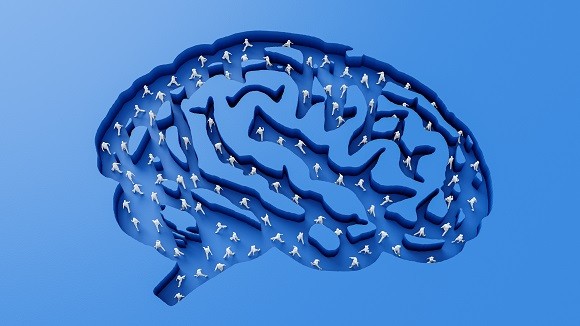
Cats learn the names of their friend cats in their daily lives
- Saho Takagi
- Atsuko Saito
- Hika Kuroshima
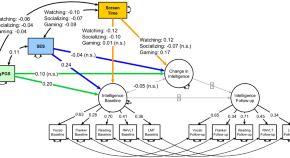
The impact of digital media on children’s intelligence while controlling for genetic differences in cognition and socioeconomic background
- Bruno Sauce
- Magnus Liebherr
- Torkel Klingberg
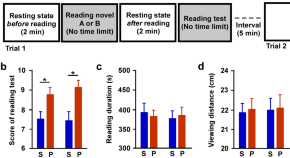
Reading on a smartphone affects sigh generation, brain activity, and comprehension
- Motoyasu Honma
- Yuri Masaoka
- Masahiko Izumizaki
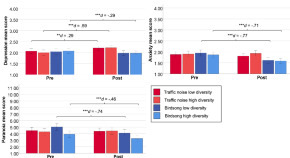
Birdsongs alleviate anxiety and paranoia in healthy participants
- J. Sundermann
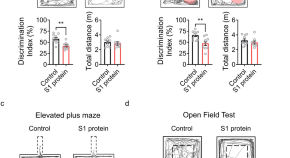
SARS-CoV-2 spike protein induces cognitive deficit and anxiety-like behavior in mouse via non-cell autonomous hippocampal neuronal death
- Junyoung Oh
- Woo-Hyun Cho
- Sung Joong Lee
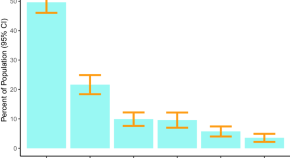
Prevalence, age of decision, and interpersonal warmth judgements of childfree adults
- Zachary P. Neal
- Jennifer Watling Neal
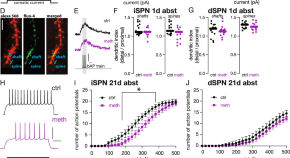
Acute and protracted abstinence from methamphetamine bidirectionally changes intrinsic excitability of indirect pathway spiny projection neurons in the dorsomedial striatum
- Sanghoon Choi
- Steven M. Graves
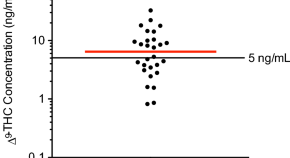
Indeterminacy of cannabis impairment and ∆ 9 -tetrahydrocannabinol (∆ 9 -THC) levels in blood and breath
- Gregory T. Wurz
- Michael W. DeGregorio
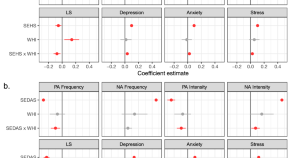
Perceiving societal pressure to be happy is linked to poor well-being, especially in happy nations
- Egon Dejonckheere
- Joshua J. Rhee
- Brock Bastian
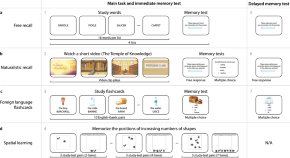
Fitness tracking reveals task-specific associations between memory, mental health, and physical activity
- Jeremy R. Manning
- Gina M. Notaro
- Paxton C. Fitzpatrick
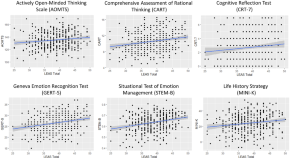
Higher emotional awareness is associated with greater domain-general reflective tendencies
- Michelle Persich
- William D. S. Killgore

Investigation of humans individual differences as predictors of their animal interaction styles, focused on the domestic cat
- Lauren R. Finka
- Lucia Ripari
- Marnie L. Brennan

Cichlids and stingrays can add and subtract ‘one’ in the number space from one to five
- V. Schluessel
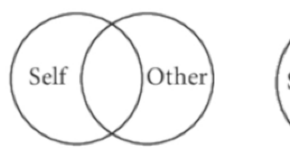
Group VR experiences can produce ego attenuation and connectedness comparable to psychedelics
- David R. Glowacki
- Rhoslyn Roebuck Williams
- Mike Chatziapostolou
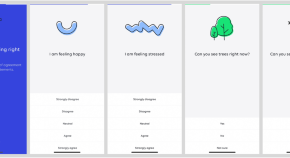
Smartphone-based ecological momentary assessment reveals mental health benefits of birdlife
- Ryan Hammoud
- Stefania Tognin
- Andrea Mechelli
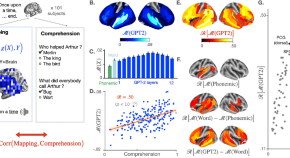
Deep language algorithms predict semantic comprehension from brain activity
- Charlotte Caucheteux
- Alexandre Gramfort
- Jean-Rémi King
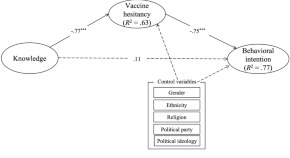
Misinformation of COVID-19 vaccines and vaccine hesitancy
- Sun Kyong Lee
- Juhyung Sun
- Shane Connelly
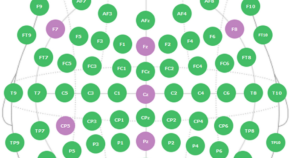
Children with autism spectrum disorder show atypical electroencephalographic response to processing contextual incongruencies
- Amparo V. Márquez-García
- Vasily A. Vakorin
- Sam M. Doesburg
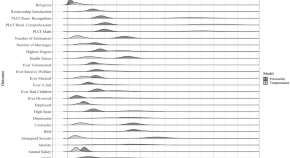
Childhood temperament and adulthood personality differentially predict life outcomes
- Amanda J. Wright
- Joshua J. Jackson
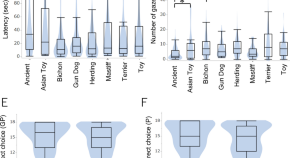
Identification of genes associated with human-canine communication in canine evolution
- Akiko Tonoike
- Ken-ichi Otaki
- Miho Nagasawa
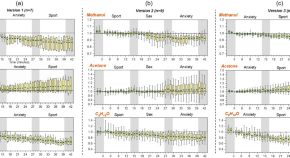
Breath chemical markers of sexual arousal in humans
- G. Pugliese
- J. Williams
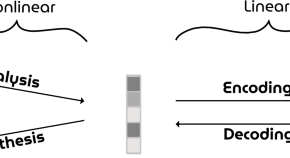
Hyperrealistic neural decoding for reconstructing faces from fMRI activations via the GAN latent space
- Thirza Dado
- Yağmur Güçlütürk
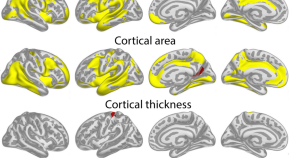
Brain aging differs with cognitive ability regardless of education
- Kristine B. Walhovd
- Lars Nyberg
- Anders M. Fjell
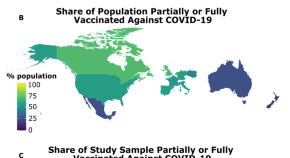
Short-sighted decision-making by those not vaccinated against COVID-19
- Julia G. Halilova
- Samuel Fynes-Clinton
- R. Shayna Rosenbaum
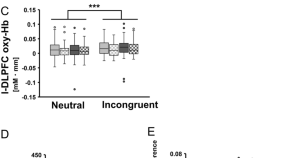
Groove rhythm stimulates prefrontal cortex function in groove enjoyers
- Takemune Fukuie
- Kazuya Suwabe
- Hideaki Soya
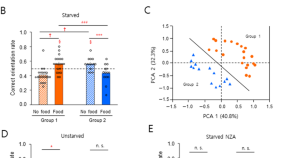
Human magnetic sense is mediated by a light and magnetic field resonance-dependent mechanism
- Kwon-Seok Chae
- Soo-Chan Kim
- Yongkuk Kim
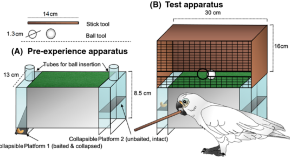
Innovative composite tool use by Goffin’s cockatoos ( Cacatua goffiniana )
- Antonio J. Osuna-Mascaró
- Roger Mundry
- Alice M. I. Auersperg
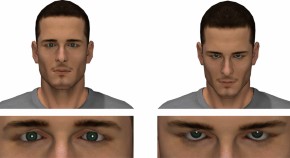
Is a downwards head tilt a cross-cultural signal of dominance? Evidence for a universal visual illusion
- Zachary Witkower
- Alexander K. Hill
- Jessica L. Tracy
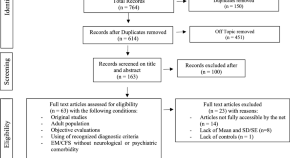
Systematic review and meta-analysis of cognitive impairment in myalgic encephalomyelitis/chronic fatigue syndrome (ME/CFS)
- Mehdi Aoun Sebaiti
- Mathieu Hainselin
- François Jérôme Authier
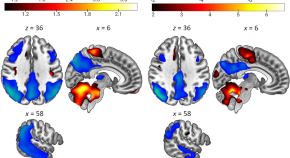
Identification and validation of Alzheimer’s disease-related metabolic brain pattern in biomarker confirmed Alzheimer’s dementia patients
- Matej Perovnik
- Petra Tomše
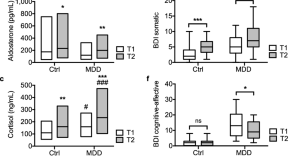
Impact of fasting on stress systems and depressive symptoms in patients with major depressive disorder: a cross-sectional study
- Britta Stapel
- Daniela Fraccarollo
- Kai G. Kahl
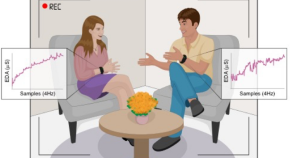
Bio-behavioral synchrony is a potential mechanism for mate selection in humans
- Nathalie klein Selle
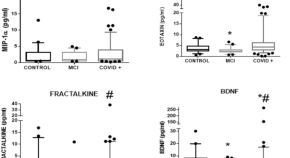
The cognitive and psychiatric subacute impairment in severe Covid-19
- Pedro J. Serrano-Castro
- Francisco J. Garzón-Maldonado
- Fernando Rodríguez de Fonseca
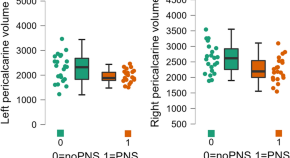
CNS imaging characteristics in fibromyalgia patients with and without peripheral nerve involvement
- Hans-Christoph Aster
- Dimitar Evdokimov
- Claudia Sommer
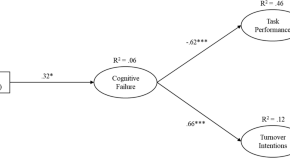
The effects of contracting Covid-19 on cognitive failures at work: implications for task performance and turnover intentions
- James W. Beck
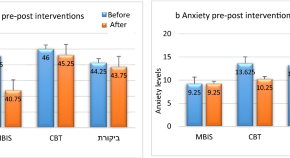
The effects of mindfulness meditation versus CBT for anxiety on emotional distress and attitudes toward seeking mental health treatment: a semi-randomized trial
- Daniela Aisenberg-Shafran
- Liav Shturm
Trait emotional intelligence in American pilots
- Zachary Dugger
- K. V. Petrides
- Bernadette McCrory

Mindfulness meditation increases default mode, salience, and central executive network connectivity
- Benno Bremer
- Kathrin Koch
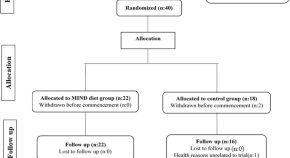
Effect of MIND diet intervention on cognitive performance and brain structure in healthy obese women: a randomized controlled trial
- Golnaz Arjmand
- Mojtaba Abbas-Zadeh
- Mohammad Hassan Eftekhari
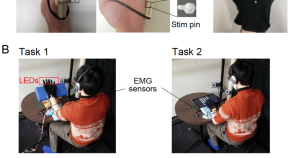
Bodily ownership of an independent supernumerary limb: an exploratory study
- Kohei Umezawa
- Yuta Suzuki
- Yoichi Miyawaki
Anabolic–androgenic steroid use is associated with psychopathy, risk-taking, anger, and physical problems
- Bryan S. Nelson
- Tom Hildebrandt
- Pascal Wallisch
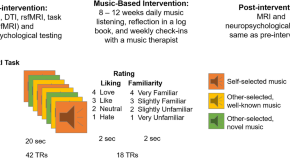
Longitudinal changes in auditory and reward systems following receptive music-based intervention in older adults
- Milena Aiello Quinci
- Alexander Belden
- Psyche Loui
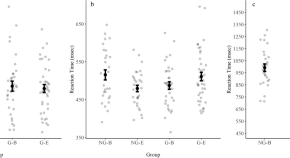
Reaction time and working memory in gamers and non-gamers
- Ronnie Lidor
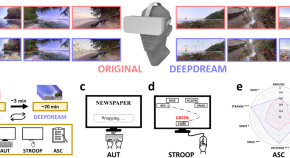
Simulated visual hallucinations in virtual reality enhance cognitive flexibility
- Clara Rastelli
- Antonino Greco
- Nicola De Pisapia
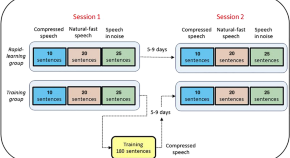
Rapid but specific perceptual learning partially explains individual differences in the recognition of challenging speech
- Karen Banai
- Hanin Karawani
- Yizhar Lavner
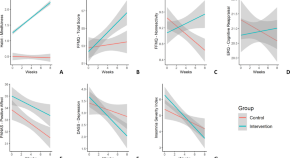
Mindfulness-based online intervention increases well-being and decreases stress after Covid-19 lockdown
- Francesco Bossi
- Francesca Zaninotto
- Emiliano Ricciardi
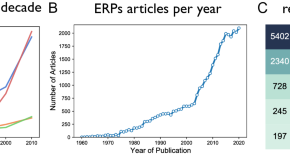
Automated meta-analysis of the event-related potential (ERP) literature
- Thomas Donoghue
- Bradley Voytek
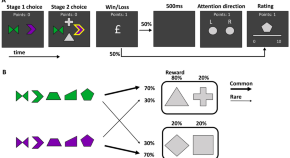
Model-based learning retrospectively updates model-free values
- Maaike M. H. Van Swieten
- Sanjay G. Manohar
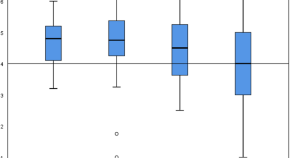
Interaction with the future self in virtual reality reduces self-defeating behavior in a sample of convicted offenders
- Jean-Louis van Gelder
- Liza J. M. Cornet
- Job van der Schalk
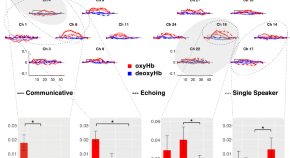
The newborn brain is sensitive to the communicative function of language
- Bálint Forgács
- Tibor Tauzin
- Judit Gervain
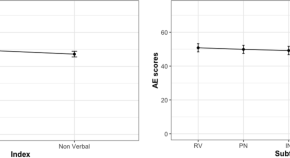
Cognitive profiles in children and adolescents with Down syndrome
- Sara Onnivello
- Francesca Pulina
- Silvia Lanfranchi
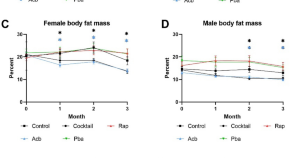

Short term treatment with a cocktail of rapamycin, acarbose and phenylbutyrate delays aging phenotypes in mice
- Warren Ladiges

Effects of exploring a novel environment on memory across the lifespan
- Judith Schomaker
- Valentin Baumann
- Marit F. L. Ruitenberg
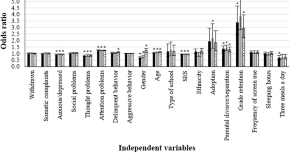
The impact of psychopathology on academic performance in school-age children and adolescents
- Mireia Pagerols
- Raquel Prat
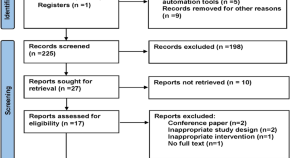
Effect of berry-based supplements and foods on cognitive function: a systematic review
- Negar Bonyadi
- Neda Dolatkhah
- Maryam Hashemian
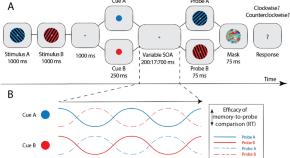
Attention rhythmically samples multi-feature objects in working memory
- Samson Chota
- Stefan Van der Stigchel

Functional brain connectomes reflect acute and chronic cannabis use
- J. G. Ramaekers
- N. L. Mason
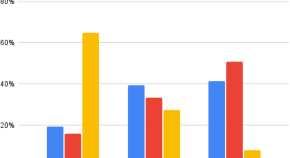
Simple questionnaires outperform behavioral tasks to measure socio-emotional skills in students
- Mélusine Boon-Falleur
- Adrien Bouguen
- Coralie Chevallier
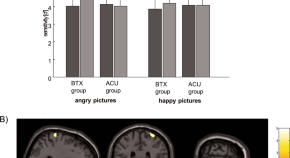
Neuronal effects of glabellar botulinum toxin injections using a valenced inhibition task in borderline personality disorder
- Tillmann H. C. Kruger
- Jara Schulze
- M. Axel Wollmer
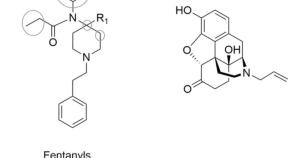
Naloxone’s dose-dependent displacement of [ 11 C]carfentanil and duration of receptor occupancy in the rat brain
- Kelly A. O’Conor
- Nora D. Volkow
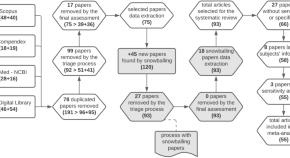
rs-fMRI and machine learning for ASD diagnosis: a systematic review and meta-analysis
- Caio Pinheiro Santana
- Emerson Assis de Carvalho
- Lucelmo Lacerda de Brito
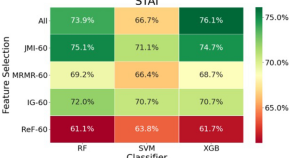
Machine learning and expression analyses reveal circadian clock features predictive of anxiety
- Rebeccah Overton
- Krista Ingram
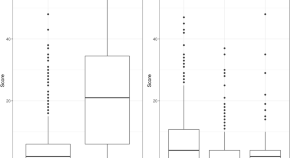
Impact of the COVID-19 pandemic on oral health and psychosocial factors
- Antonio Ciardo
- Marlinde M. Simon
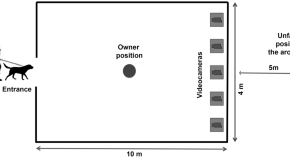
Facial asymmetry in dogs with fear and aggressive behaviors towards humans
- Marcello Siniscalchi
- Serenella d’Ingeo
- Angelo Quaranta
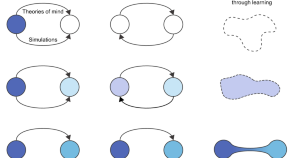
Superposition mechanism as a neural basis for understanding others
- Wataru Noguchi
- Hiroyuki Iizuka
- Shigeru Taguchi
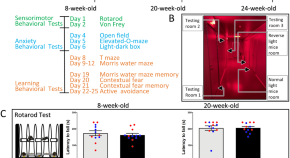
Influence of diurnal phase on behavioral tests of sensorimotor performance, anxiety, learning and memory in mice
- Chi-Hui Tsao
- Jonathan Flint
- Guo-Jen Huang
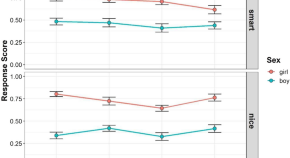
Gender stereotypes about intellectual ability in Japanese children
- Mako Okanda
- Xianwei Meng
- Yusuke Moriguchi
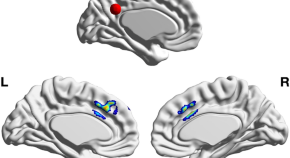
Meta-analytic evidence that mindfulness training alters resting state default mode network connectivity
- Hadley Rahrig
- David R. Vago
- Kirk Warren Brown
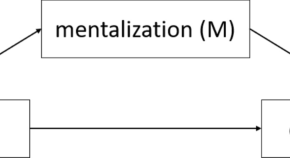
Mentalization and dissociation after adverse childhood experiences
- J. Wagner-Skacel
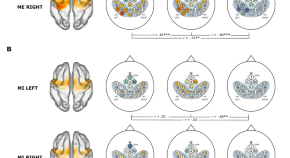
fMRI-based validation of continuous-wave fNIRS of supplementary motor area activation during motor execution and motor imagery
- Franziska Klein
- Stefan Debener
- Cornelia Kranczioch
Predictors of adherence to public health behaviors for fighting COVID-19 derived from longitudinal data
- Birga M. Schumpe
- Caspar J. Van Lissa
- N. Pontus Leander
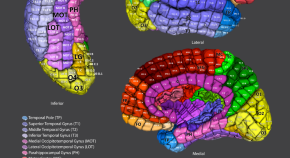
High-resolution cortical parcellation based on conserved brain landmarks for localization of multimodal data to the nearest centimeter
- Hari McGrath
- Hitten P. Zaveri
- Dennis D. Spencer
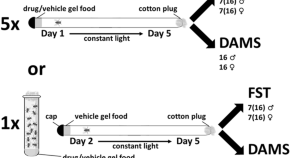
Validation of the forced swim test in Drosophila , and its use to demonstrate psilocybin has long-lasting antidepressant-like effects in flies
- C. D. Nichols
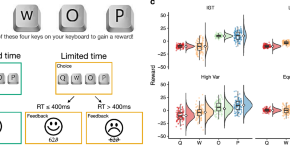
Time pressure changes how people explore and respond to uncertainty
- Charley M. Wu
- Eric Schulz
- Maarten Speekenbrink
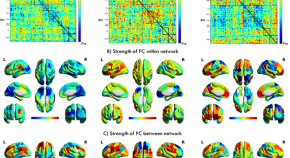
Functional connectivity of brain networks with three monochromatic wavelengths: a pilot study using resting-state functional magnetic resonance imaging
- Marc Argilés
- Bernat Sunyer-Grau
- Cleofé Peña-Gómez
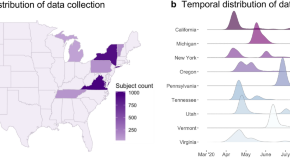
Behavioral coping phenotypes and associated psychosocial outcomes of pregnant and postpartum women during the COVID-19 pandemic
- Denise M. Werchan
- Cassandra L. Hendrix
- Natalie H. Brito
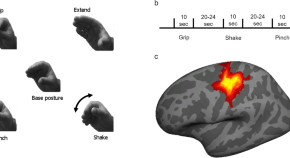
Spontaneous activity patterns in human motor cortex replay evoked activity patterns for hand movements
- Tomer Livne
- Maurizio Corbetta
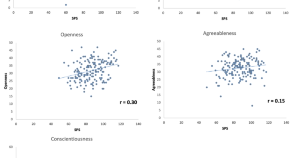
Sensory processing sensitivity and somatosensory brain activation when feeling touch
- Michael Schaefer
- Anja Kühnel
- Matti Gärtner
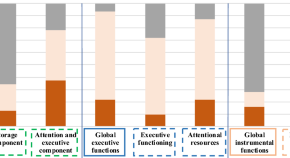
The interplay between cognition, depression, anxiety, and sleep in primary Sjogren’s syndrome patients
- Radjiv Goulabchand
- Elodie Castille
- Philippe Guilpain
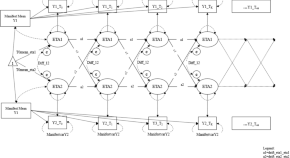
Dynamics of adolescents’ smartphone use and well-being are positive but ephemeral
- Laura Marciano
- Charles C. Driver
- Anne-Linda Camerini
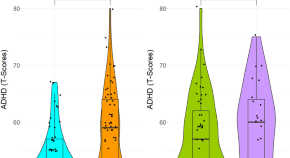
ADHD symptoms and use of anabolic androgenic steroids among male weightlifters
- Emilie Kildal
- Bjørnar Hassel
- Astrid Bjørnebekk
Facial mask personalization encourages facial mask wearing in times of COVID-19
- Johanna Palcu
- Martin Schreier
- Chris Janiszewski
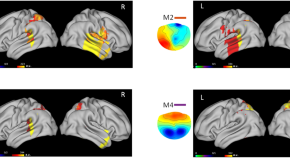
Exploring brain activity for positive and negative emotions by means of EEG microstates
- Giulia Prete
- Pierpaolo Croce
- Paolo Capotosto
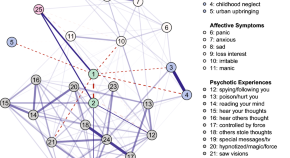
A network approach to relationships between cannabis use characteristics and psychopathology in the general population
- Linda T. Betz
- Nora Penzel
- Joseph Kambeitz
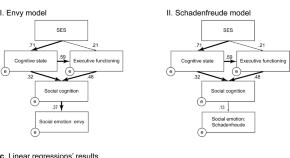
Socioeconomic status impacts cognitive and socioemotional processes in healthy ageing
- Joaquín Migeot
- Mariela Calivar
- Sol Fittipaldi
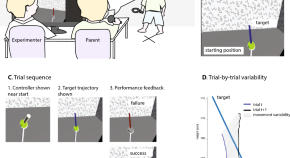
Parental praise and children’s exploration: a virtual reality experiment
- Eddie Brummelman
- Stathis Grapsas
- Katinka van der Kooij
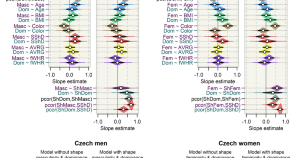
Africans and Europeans differ in their facial perception of dominance and sex-typicality: a multidimensional Bayesian approach
- Vojtěch Fiala
- Petr Tureček
- Karel Kleisner
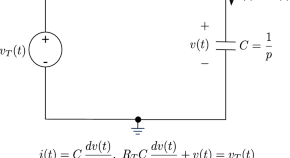
Brain information processing capacity modeling
- Tongtong Li
- Karl Friston
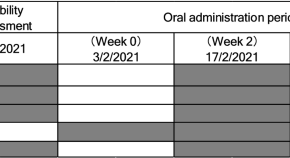
Safety evaluation of β-nicotinamide mononucleotide oral administration in healthy adult men and women
- Yuichiro Fukamizu
- Yoshiaki Uchida
- Takanobu Sakurai
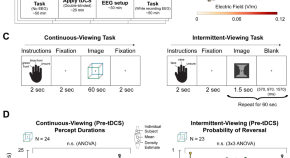
Neural oscillations promoting perceptual stability and perceptual memory during bistable perception
- Michael Zhu
- Richard Hardstone
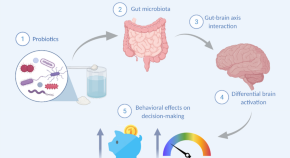
The effects of probiotics on risk and time preferences
- Aline M. Dantas
- Alexander T. Sack
- Teresa Schuhmann
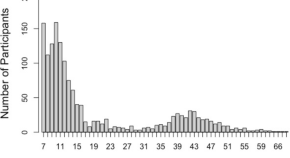
Media-multitasking and cognitive control across the lifespan
- Natasha Matthews
- J. B. Mattingley
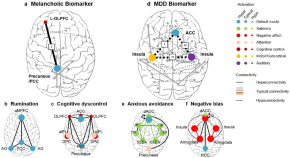
Depressive symptoms reduce when dorsolateral prefrontal cortex-precuneus connectivity normalizes after functional connectivity neurofeedback
- Jessica Elizabeth Taylor
- Takashi Yamada
- Tomokazu Motegi
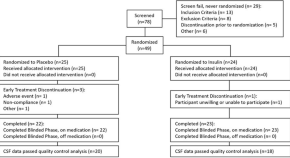
Intranasal insulin modulates cerebrospinal fluid markers of neuroinflammation in mild cognitive impairment and Alzheimer’s disease: a randomized trial
- Derek Kellar
- Thomas Register
- Suzanne Craft
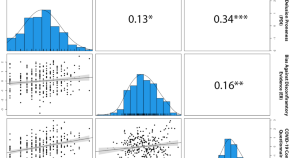
COVID-19 conspiracy ideation is associated with the delusion proneness trait and resistance to update of beliefs
- O. Horntvedt
- P. Petrovic
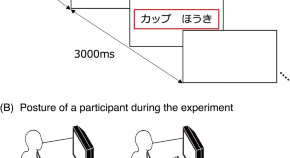
Hand constraint reduces brain activity and affects the speed of verbal responses on semantic tasks
- Kunihito Tobita
- Shogo Makioka
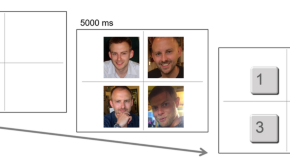
Impaired grouping of ambient facial images in autism
- Bayparvah Kaur Gehdu
- Katie L. H. Gray
- Richard Cook
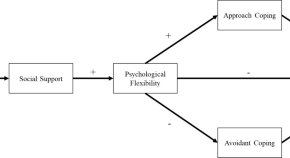
Social support, psychological flexibility and coping mediate the association between COVID-19 related stress exposure and psychological distress
- Richard Tindle
- Ahmed A. Moustafa
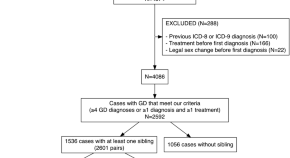
Gender dysphoria in twins: a register-based population study
- Georgios Karamanis
- Maria Karalexi
- Fotios C. Papadopoulos

Learning from communication versus observation in great apes
- Hanna Marno
- Christoph J. Völter
Quick links
- Explore articles by subject
- Guide to authors
- Editorial policies

Statistics in Psychological Research
- Data Collection and Analysis
Psychological Research
August 2023

Unlock the power of data with this 10-hour, comprehensive course in data analysis. This course is perfect for anyone looking to deepen their knowledge and apply statistical methods effectively in psychology or related fields.
The course begins with consideration of how researchers define and categorize variables, including the nature of various scales of measurement and how these classifications impact data analysis and interpretation. This is followed by a thorough introduction to the measures of central tendency, variability, and correlation that researchers use to describe their findings, providing an understanding of such topics as which descriptive statistics are appropriate for given research designs, the meaning of a correlation coefficient, and how graphs are used to visualize data.
The course then moves on to a conceptual treatment of foundational inferential statistics that researchers use to make predictions or inferences about a population based on a sample. The focus is on understanding the logic of these statistics, rather than on making calculations. Specifically, the course explores the logic behind null hypothesis significance testing, long a cornerstone of statistical analysis. Learn how to formulate and test hypotheses and understand the significance of p-values in determining the validity of your results. The course reviews how to select the appropriate inferential test based on your study criteria. Whether it’s t-tests, ANOVA, chi-square tests, or regression analysis, you’ll know which test to apply and when.
In keeping with growing concerns about some of the limitations of null hypothesis significance testing, such as its role in the so-called replication crisis, the course also delves into these concerns and possible ways to address them, including introductory consideration of statistical power and alternatives to hypothesis testing like estimation techniques and confidence intervals, meta-analysis, modeling, and Bayesian inference.
Learning objectives
- Explain various ways to categorize variables.
- Describe the logic of inferential statistics.
- Explain the logic of null hypothesis significance testing.
- Select the appropriate inferential test based on study criteria.
- Compare and contrast the use of statistical significance, effect size, and confidence intervals.
- Explain the importance of statistical power.
- Describe how alternative procedures address the major objections to null hypothesis significance testing.
- Explain various ways to describe data.
- Describe how graphs are used to visualize data.
- Explain the meaning of a correlation coefficient.
This program does not offer CE credit.
More in this series
Introduces the scientific research process and concepts such as the nature of variables for undergraduates, high school students, and professionals.
August 2023 On Demand Training
Introduces the importance of ethical practice in scientific research for undergraduates, high school students, and professionals.
Physical fitness and enhanced psychological health
- Published: March 1990
- Volume 9 , pages 3–24, ( 1990 )
Cite this article

- Thomas G. Plante Ph.D. 1 &
- Judith Rodin 2
1835 Accesses
134 Citations
3 Altmetric
Explore all metrics
A great deal of attention has been given to the association between physical fitness and psychological health. The purpose of this view is to examine recent developments in the burgeoning exercise and psychological health literature and to explore avenues for future research. The current review focuses on research that has examined enhancement of psychological health and well-being among nonclinical populations since 1980. Four areas of psychological functioning are reviewed: (1) psychological well-being and mood, (2) personality and self-concept, (3) physiological stress responsivity and (4) cognition. Exercise appears to improve mood and psychological well-being as well as enhancing self-concept and self-esteem. Exercise appears to do little for personality functioning. Furthermore, mixed empirical support exists to suggest that exercise influences stress responsivity and cognitive functioning. However better research designs and procedures are still needed. Theories regarding the connection between exercise and psychological functioning as well as suggestions for future research are offered.
This is a preview of subscription content, log in via an institution to check access.
Access this article
Subscribe and save.
- Get 10 units per month
- Download Article/Chapter or eBook
- 1 Unit = 1 Article or 1 Chapter
- Cancel anytime
Price includes VAT (Russian Federation)
Instant access to the full article PDF.
Rent this article via DeepDyve
Institutional subscriptions
Similar content being viewed by others

Exercise, Health Disorders, and Injuries
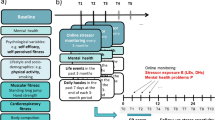
The impact of physical fitness on resilience to modern life stress and the mediating role of general self-efficacy

Physical Activity and Subjective Wellbeing
Bandura, A. (1977). Self-efficacy: Toward a unifying theory of behavioral change. Psychological Review, 84 , 191–215.
Article PubMed Google Scholar
Beck, A.T., & Beamesderfer, A. (1974). Assessment of depression: The Depression Inventory. In P. Pichot (Ed.), Psychological measurements in psychopharmacology (pp. 1–10). Basel, Switzerland: Karger.
Google Scholar
Berger, B.G., & Owen, D.R. (1983). Mood alteration with swimming—swimmers really do “feel better”. Psychosomatic Medicine, 45 , 425–433.
PubMed Google Scholar
Berger, B.G., & Owens, D.R. (1988). Stress reduction and mood enhancement in four exercise modes: Swimming, body conditioning, heatha yoga, and fencing. Research Quarterly for Exercise and Sport, 59 , 148–159.
Blumenthal, J.A., Emery, C.F., Walsh, M.A., Cox, D.R., Kuhn, C.M., Williams, R.B., and Williams, R.S. (1988). Exercise training in healthy Type A middle-aged men: Effects on behavioral and cardiovascular responses. Psychosomatic Medicine, 50 , 418–433.
Blumenthal, J.A., & Madden, D.J. (1988). Effects of aerobic exercise training, age, and physical fitness on memory-search performance. Psychology and Aging, 3 , 280–285.
Blumenthal, J.A., Schocken, D.D., Needels, T.L., & Hindle, P. (1982a). Psychological and physiological effects of physical conditioning on the elderly. Journal of Psychosomatic Research, 26 , 505–510.
Blumenthal, J.A., Williams, S., Needels, T.L., & Wallace, A.G. (1982b). Psychological changes accompany aerobic exercise in healthy middle-aged adults. Psychosomatic Medicine, 44 , 529–535.
Browman, C.P. (1981). Physical activity as a therapy for psychopathology: A reappraisal. Journal of Sports Medicine, 21 , 192–197.
Buffone, G.W. (1980). Exercise as therapy: A closer look. Journal of Counseling and Psychotherapy, 3 , 101–115.
Brown, J.D., & Lawton, M. (1986). Stress and well-being in adolescence: The moderating role of physical exercise. Journal of Human Stress, 12 , 125–131.
Cattell, R.B., Eber, H.W., & Tatsuleo, M.M. (1970). Handbook for the Sixteen Personality Factors Questionnaire (16PF) in clinical, educational, industrial, and research psychology . Institute for Personality and Ability Testing: Champaign, IL.
Coleman, M., Washington, M.A., & Price, S. (1985). Physical exercise, social background, and well-being of older adult women. Perceptual and Motor Skills, 60 , 737–738.
Cook, T.D., & Campbell, D.T. (1979). Quasi-experimentation: Design and analysis issues for field settings . Chicago, IL: Rand McNally College Publishing.
Cooper, K.H. (1982). The aerobic program for total well being . New York: Bantam Books.
Crews, D.J., & Landers, D.M. (1987). A meta-analytic review of aerobic fitness and reactivity to psychosocial stressors. Medicine and Science in Sports and Exercise, 19 , 114–120.
deVries, H.A. (1968). Immediate and long term effects of exercise upon resting muscle action potential level. Journal of Sports Medicine and Physical Fitness, 8 , 1–11.
Doan, R.E., & Scherman, A. (1987). The therapeutie effect of physical fitness on measures of personality: A literature review. Journal of Counseling and Development, 66 , 28–36.
Doyne, E.J., Ossip-Klein, D.J., Bowman, E.D., Osborn, K.M., McDougall-Wilson, I.B., & Neimeyer, R.A. (1987). Running versus weight lifting in the treatment of depression. Journal of Consulting and Clinical Psychology, 55 , 748–754.
Dustman, R.E., Ruhling, R.O., Russell, E.M., Shearer, D.E., Bonekat, W., Shigeoka, J.W., Wood, J.S., & Bradford, D.C. (1984). Aerobic exercise training and improved neuropsychological function of older individuals. Neurobiology of Aging, 5 , 35–42.
Dyer, J.B., & Crouch, J.G. (1987). Effects of running on moods: A time series study. Perceptual and Motor Skills, 64 , 783–789.
Edmondson, B. (1987). Sweating for Tenneco. American Demographics, 9 , 19.
El-Naggar, A.M. (1986). Physical training effect on relationship of physical, mental, and emotional fitness in adult men. Journal of Ergology, 15 , 79–84.
Emery, C.F., & Blumenthal, J.A. (1988). Effects of exercise training on psychological functioning in healthy Type A men. Psychology and Health, 2 , 367–379.
Ewing, J.H., & Scott, D.G. (1984). Effects of aerobic exercise upon affect and cognition. Perceptual and Motor Skills, 59 , 407–414.
Falkenberg, L.E. (1987). Employce fitness programs: Their impact on the employee and the organization. Academy of Management Review, 12 , 511–521.
Article Google Scholar
Farrell, P.A. (1981). Exercise and endogenous opioids. New England Journal of Medicine, 305 , 1591–1592.
Farrell, P.A., Gustafson, A.B., Morgan, W.P., & Pert, C.B. (1987). Enkephalins, catecholamines, and psychological and alterations: effects of prolonged exercise. Medicine and Science in Sports and Exercise, 19 , 347–353.
Folkins, C.H., & Sime, W.E. (1981). Physical fitness and mental health. American Psychologist, 36 , 373–389.
Gelb, B.D. (1985). Preventive medicine and employee productivity. Harvard Business Review, 63 , 12–13.
Goldfarb, L.A., & Plante, T.G. (1984). Fear of fat in runners: An examination of the connection between anorexia nervosa and distance running. Psychological Reports . 55 , 296.
Goldwater, B.C., & Collis, M.L. (1985). Psychologic effects of cardiovascular conditioning: A controlled experiment. Psychosomatic Medicine, 47 , 174–181.
Haier, R.J., Quaid, K., & Mills, J.S.C. (1981). Naloxone alters perception after jogging. Psychiatry Research, 5 , 231–232.
Hale, R.E., & Travis, T.W. (1987). Exercise as a treatment option for anxiety and depressive disorders. Military Medicine, 152 , 299–302.
Hammer, W.M., & Wilmore, J.H. (1973). An exploratory investigation in personality measures and physiological alterations during a 10-week jogging program. Journal of Sports Medicine and Physical Fitness, 13 , 238–247.
Hartung, G.H., & Farge, E.J. (1977). Personality and physiological traits in middle-aged runners and joggers. Journal of Gerontology, 32 , 541–548.
Hathaway, S.R., & McKinley, J.C. (1972). MMPI Manual . New York: Psychological Corporation.
Hayden, R.M., & Allen, G.J. (1984). Relationship between aerobic exercise, anxiety, and depression: Convergent validation by knowledgeable informants. Journal of Sports Medicine, 24 , 69–74.
Hayes, D., & Ross, C.E. (1986). Body and mind: The effect of exercise, overweight, and physical health on psychological well-being. Journal of Health and Social Behavior, 27 , 387–400.
Hollander, B.J., & Seraganian, P. (1984). Aerobic fitness and psychophysiological reactivity. Canadian Journal of Behavioral Science, 16 , 257–261.
Hollandsworth, J.G. (1979). Some thoughts on distance runnings as training in biofeedback. Journal of Sport Behavior, 2 , 71–82.
Holmes, D.S., & McGilley, B.M. (1987). Influence of a brief aerobic training program on heart rate and subjective response to a psychologic stressor. Psychosomatic Medicine, 49 , 366–374.
Holmes, D.S., & Roth, D.L. (1988). Effects of aerobic exercise training and relaxation training on cardiovascular activity during psychological stress. Journal of Psychosomatic Research, 32 , 469–474.
Howard, J.S. (1987). Employee wellness: It’s good business. D & B Reports, 35 , 34.
Hughes, J.R. (1984). Psychological effects of habitual aerobic exercise: A critical review. Preventive Medicine . 13, 66–78.
Hughes, J.R., Casal, D.C., & Leon, A.S. (1986). Psychological effects of exercise: A randomized cross-over trial. Journal of Psychosomatic Research, 30 , 355–360.
Ismail, A.H., & Trachtman, L.E. (1973). Jogging the imagination. Psychology Today, 6 , 78–82.
Jamieson, J.L., & Lavoie, N.F. (1987). Type A behavior, aerobic power, and cardiovascular recovery from a psychosocial stressor. Health Psychology, 6 , 361–371.
Jasnoski, M.L., & Holmes, D.S. (1981). Influence of initial aerobic fitness, aerobic training and changes in aerobic fitness on personality functioning. Journal of Psychosomatic Research, 25 , 553–556.
Jasnoski, M.L., Holmes, D.S., & Banks, D.L. (1988). Changes in personality associated with changes in aerobic and anaerobic fitness in women and men. Journal of Psychosomatic Research, 32 , 273–276.
Jenkins, C.D., Rosenman, R.H., & Zyzanski, S.J. (1974). Prediction of clinical coronary heart disease by a test for the coronary-prone behavior pattern. New England Journal of Medicine, 290 , 1271–1275.
Keller, S., & Serganian, P. (1984). Physical fitness and autonomic reactivity to psychosocial stress. Journal of Psychosomatic Research, 28 , 279–287.
King, A.C., Taylor, C.B., Haskell, W.L., & DeBusk, R.F. (1989). Influence of regular aerobic exercise on psychological health: A randomized, controlled trial of healthy middle-aged adults. Health Psychology, 8 , 305–324.
Klock, H.S. (1985). The benefit that’s growing by leaps and bounds. Personnel, 62 , 13–16.
Kobasa, S.C., Maddi, S.R., & Puccetti, M.C. (1982). Personality and exercise as buffers in the stress-illness relationship. Journal of Behavioral Medicine, 5 , 391–404.
Lake, B.W., Suarez, E.C., Schneiderman, N., & Tocci, N. (1985). The Type A behavior pattern, physical fitness, and psychophysiological reactivity. Health Psychology, 4 , 169–187.
Ledwidge, B. (1980). Run for your mind: Aerobic exercise as a means of alleviating anxiety and depression. Canadian Journal of Behavioral Science, 12 , 127.
Lichtman, S., & Poser, E.G. (1983). The effects of exercise on mood and cognitive functioning. Journal of Psychosomatic Research, 27 , 43–52.
Light, K.C., Obrist, P.A., James, S.A., and Strogatz, D.S. (1987). Cardiovascular responses to stress: II. Relationships to aerobic exercise patterns. Psychophysiology, 24 , 79–86.
Lobitz, W.C., Brammell, H.L., Stoll, S., & Niccoli, A. (1983). Physical exercise and anxiety management training for cardiac stress management in a nonpatient population. Journal of Cardiac Rehabilitation, 3 , 683–688.
Lobstein, D.D., Mosbacher, B.J., & Ismail, A.H. (1983). Depression as a powerful discriminator between physically active and sedentary middle-aged men. Journal of Psychosomatic Research, 27 , 69–76.
Long, B.C. (1983). Aerobic conditioning and stress reduction: Participation or conditioning? Human Movement Science, 2 , 171–186.
Markoff, R.A., Ryan, P., & Young, T. (1982). Endorphins and mood changes in long-distance running. Medicine and Science in Sports and Exercise, 14 , 11–15.
Martinsen, E.W. (1989). The role of aerobic exercise in the treatment of depression. Stress Medicine , 3, 93–100.
McNair, D.M., Lorr, M., Droppleman, L.F. (1971). Manual for the Profile of Moods States . San Diego: Educational and Industrial Testing Service.
Michael, E.D. (1957). Stress adaptation through exercise. Research Quarterly, 28 , 50–54.
Mobily, K. (1982). Using physical activity and recreation to cope with stress and anxiety: A review. American Correction Journal, 36 , 77–81.
Moses, J., Steptoe, A., Matthews, A., & Edwards, S. (1989). The effects of exercise training on mental well being in the normal population: A controlled trial. Journal of Psychosomatic Research, 83 , 47–61.
Oberman, A. (1984). Healthy exercise. Western Journal of Medicine , 141, 864–871.
Parent, C.J., & Whall, A.L. (1984). Are physical activity, self-esteem, and depression related? Journal of Gerontological Nursing, 10 , 8–10.
Pauly, J.T., Palmer, J.A., Wright, C.C., & Pfeiffer, G.J. (1982). The effect of a 14-week employee fitness program on selected physiological and psychological parameters, Journal of Occupational Medicine, 24 , 457–463.
Perri, S., & Templer, D.I. (1985). The effects of an aerobic exercise program on psychological variables in older adults. International Journal of Aging and Human Development, 20 , 167–172.
Phelps, J.R. (1987). Physical activity and health maintenance—Exactly what is known? Western Journal of Medicine, 146 , 200–206.
Plante, T.G., & Karpowitz, D. (1987). The influence of aerobic exercise on physiological stress responsivity. Psychophysiology, 24 , 670–677.
Plante, T.G., & Schwartz, G.E. (1990). Defensive and repressive coping styles: Self-presentation, leisure activities, and assessment. Journal of Research in Personality , 24, 173–190.
Plummer, O.K., & Koh, Y.O. (1987). Effect of “aerobics” on self-concepts of college women. Perceptual and Motor Skills, 65 , 271–275.
Raglin, J.S., & Morgan, W.P. (1985). Influence of vigorous exercise on mood states. The Behavior Therapist, 8 , 179–183.
Ransford, C.P. (1982). A role for amines in the antidepressant effect of exercise: A review. Medicine and Science in Sports and Exercise, 14 , 1–10.
Rape, R.N. (1987). Running and depression. Perceptual and Motor Skills , 64, 1303–1310.
Rippe, J.M., Ward, A., Porcari, J.P., Freedson, P.S. (1988). Walking for health and fitness. Journal of the American Medical Association, 259 , 2720–2724.
Rodin, J., & Plante, T.G. (1989). The psychological effects of exercise. In R.S. Williams and A. Wallace (Eds.), Biological effects of physical activity . Champaign, IL: Human Kinetics Books.
Roskies, E., Seraganian, P., Oseasohn, R., Hanley, J.A., Collu, R., Martin, N., & Smilga, C. (1986). The Montreal Type A intervention project: Major findings. Health Psychology, 5 , 45–69.
Sachs, M.L. (1982). Exercise and running: Effects on anxiety, depression, and psychology. Humanistic Education and Development, 21 , 51–57.
Schwartz, G.E., Davidson, R.J., & Coleman, D.J. (1978). Patterning of cognitive and somatic processes in the self-regulation of anxiety: Effects of meditation versus exercise. Psychosomatic Medicine, 40 , 321–328.
Severtsen, B., & Bruya, M.A. (1986). Effects of meditation and aerobic exercise on EEG patterns. Journal of Neuroscience Nursing, 18 , 206–210.
Sherwood, Light, K.C., Blumenthal, J.A. (1989). Effects of aerobic exercise training on hemodynamic responses during psychosocial stress in normotensive and borderline hypertensive Type A men: A preliminary report. Psychosomatic Medicine, 51 , 123–136.
Shulhan, D., Scher, H., & Furedy, J.J. (1986). Phasic cardiac reactivity to psychosocial stress as a function of aerobic fitness level. Psychophysiology, 23 , 562–566.
Sinyor, D., Golden, M., Steinert, Y., & Seraganian, P. (1986). Experimental manipulation of aerobic fitness and the response to psychosocial stress: Heart rate and self-report measures. Psychosomatic Medicine, 48 , 324–337.
Sinyor, D., Peronnet, F., Brisson, G., & Seraganian, P. (1988). Failure to alter sympathoadrenal response to psychosocial stress following aerobic training. Physiology and Behavior, 42 , 293–296.
Sinyor, D., Schwartz, S. G., Peronnet, F., Brisson, G., & Seraganian, P. (1983). Aerobic fitness level and reactivity to psychosocial stress: Physiological, biochemical, and subjective measures. Psychosomatic Medicine, 45 , 205–217.
Simons, C.W., & Birkimer, J.C. (1988). An exploration of factors predicting the effects of aerobic conditioning on mood state. Journal of Psychosomatic Research, 32 , 63–75.
Simons, A.D., McGowan, C.R., Epstein, L.H., Kupfer, D.J., & Robertson, R.J. (1985). Exercise as a treatment for depression: An update. Clinical Psychology Review, 5 , 553–568.
Sjoberg, H. (1980). Physical fitness and mental performance during and after work. Ergonomics, 23 , 977–895.
Sonstroem, R.J. (1984). Exercise and self-esteem. Exercise and Sports Science Review, 12 , 123–155.
Sothmann, M.S., & Ismail, A.H. (1984). Relationship between urinary catecholamine metabolites, particularly MHPG, and selected personality and physical fitness characteristics in normal subjects. Psychosomatic Medicine, 46 , 523–531.
Spielberger, C., Gorsuch, R., & Lushene, R. (1970). Manual for the State-Trait Anxiety Inventory . Palo Alto, CA: Consulting Psychologist Press.
Spirduso, W. W. (1980). Physical fitness, aging, and psychomotor speed: A review. Journal of Gerontology, 35 , 850–865.
Steptoe, A., & Cox, S. (1988). Acute effects of aerobic exercise on mood. Health Psychology, 7 , 329–340.
Taylor, C.B., Sallis, J.F., Needle, R. (1985). The relation of physical activity and exercise to mental health. Public Health Reports, 100 , 195–202.
Tomporowski, P.D., & Ellis, N. R. (1986). Effects of exercise on cognitive processes: A review. Psychological Bulletin, 99 , 338–346.
Tomporowski, P.D., Ellis, N.R., & Stevens, R. (1987). The immediate effects of strenuous exercise on free-recall memory. Ergonomics, 30 , 121–129.
Tsai, S.P., Baun, W.B., & Bernacki, E.J. (1987). Relationship of employee turnover to exercise adherence in a corporate fitness program. Journal of Occupational Medicine, 29 , 572–575.
Tucker, L.A. (1982). Effects of a weight-training program on the self-concepts of college males. Perceptual and Motor Skills, 54 , 1055–1061.
Tucker, L.A., Cole, G.E., & Friedman, G.M. (1986). Physical fitness: A buffer against stress. Perceptual and Motor Skills, 61 , 1031–1038.
Turner, J.R., Carroll, D., Costello, M., & Sims, J. (1988). The effects of aerobic fitness on additional heart rates during active psychological challenge. Journal of Psychophysiology, 2 , 91–97.
Valliant, P.M., & Asu, M.E. (1985). Exercise and its effects on cognition and physiology in older adults. Perceptual and Motor Skills, 63 , 955–961.
van Doornen, L.J.P., & de Geus, E.J.C. (1989). Aerobic fitness and the cardiovascular response to stress. Psychophysiology, 26 , 17–28.
Von Euler, C., & Soderberg, U. (1956). The relation between gamma motor activity and electroencephalogram. Experimentia, 12 , 278–279.
Von Euler, C., & Soderberg, U. (1957). The influence of hypothalamic thermoceptive structures on the electroencephalogram and gamma motor activity. EEG and Clinical Neurophysiology, 9 , 391–408.
Wilfley, D., & Kunce, J. (1986). Differential physical and psychological effects of exercise. Journal of Counseling Psychology, 63 , 337–342.
Williams, J.M., & Getty, D. (1986). Effect of levels of exercise on psychological mood states, physical fitness, and plasma beta-endorphin. Perceptual and Motor Skills, 63 , 1099–1105.
Zimmerman, J.D., & Fulton, M. (1981). Aerobic fitness and emotional arousal: A critical attempt at replication. Psychological Reports, 48 , 911–918.
Download references
Author information
Authors and affiliations.
Children’s Health Council, 700 Sand Hill Road, 94304, Palo Alto, CA
Thomas G. Plante Ph.D.
Yale University, USA
Judith Rodin
You can also search for this author in PubMed Google Scholar
Rights and permissions
Reprints and permissions
About this article
Plante, T.G., Rodin, J. Physical fitness and enhanced psychological health. Current Psychology 9 , 3–24 (1990). https://doi.org/10.1007/BF02686764
Download citation
Accepted : 15 January 1990
Issue Date : March 1990
DOI : https://doi.org/10.1007/BF02686764
Share this article
Anyone you share the following link with will be able to read this content:
Sorry, a shareable link is not currently available for this article.
Provided by the Springer Nature SharedIt content-sharing initiative
- Exercise Program
- Aerobic Exercise
- Physical Fitness
- Psychological Functioning
- Aerobic Fitness
- Find a journal
- Publish with us
- Track your research

IMAGES
VIDEO
COMMENTS
Overview. Current Psychology is a global platform for publishing peer-reviewed, leading-edge research across all major areas of psychology. Welcomes empirical and theoretical contributions. Encompasses cognitive, social, clinical, health, developmental, methodological, consumer and business, educational, and personality psychology; along with ...
Exploring the varied effects of occupational and family stress on sleep quality in military personnel on islands: a cross-sectional study in China. Current Psychology is a global platform for publishing peer-reviewed, leading-edge research across all major areas of psychology. Welcomes empirical and ...
This Review consolidates research from four domains in social psychology (prejudice reduction, conflict resolution, intergroup reconciliation and affective polarization) to elucidate the critical ...
Volume 40 January - December 2021. Issue 12 December 2021. Issue 11 November 2021. Issue 10 October 2021. Issue 9 September 2021. Issue 8 August 2021. Issue 7 July 2021. Issue 6 June 2021. Issue 5 May 2021.
Using a dataset spanning 74 countries, Pertl et al. show that emotions predict intertemporal and risky decision-making. These relationships are stronger in more economically developed and ...
This Review consolidates research from four domains in social psychology (prejudice reduction, conflict resolution, intergroup reconciliation and affective polarization) to elucidate the critical ...
CURRENT PSYCHOLOGICAL RESEARCH & REVIEWS is an international forum for the rapid dissemination of psychological information at the cutting edge of all aspects of the field. CPRR publishes significant empirical contributions from all areas of psychology including critical review articles, book reviews, and reports on new instrumentation and ...
Journal scope statement. Psychological Review® publishes articles that make important theoretical contributions to any area of scientific psychology, including systematic evaluation of alternative theories. Papers mainly focused on surveys of the literature, problems of method and design, or reports of empirical findings are not appropriate.
Current Psychology is an international forum for rapid dissemination of peer-reviewed research at the cutting edge of psychology. It welcomes significant and rigorous empirical and theoretical contributions from all the major areas of psychology, including but not limited to: cognitive psychology and cognition, social, clinical, health, developmental, methodological, and personality psychology ...
Racial Inequality in Psychological Research: Trends of the Past and Recommendations for the Future: Systematic inequality exists within psychological research. This is the conclusion researchers published in Perspectives on Psychological Science after querying more than 26,000 articles published between 1974 and 2018 in top-tier psychology ...
1. COVID-19 disruption on college students: Academic and socioemotional implications. Tasso, A. F., Hisli Sahin, N., San Roman, G. J. This study in Psychological Trauma: Theory, Research, Practice, and Policy (Vol. 13, No. 1) reveals that college students experienced emotional distress on many levels during the COVID-19 pandemic. Researchers surveyed 257 students at a U.S. college who all ...
Current Directions in Psychological Science publishes reviews by leading experts covering all of scientific psychology and its applications. Each issue of Current Directions features a diverse mix of reports on various topics such as language, memory and cognition, development, the neural basis of behavior and emotions, various aspects of psychopathology, and theory of mind.
Two articles in Nature Reviews Psychology propose a resilience-based approach to mental health outcomes that shifts attention from a binary view of psychopathology to diversity. Editorial 07 Nov 2023.
Advancing psychology to benefit society and improve lives. Psychologists are increasingly being called on to help solve some of the greatest challenges we face as a society. In 2023, APA sees this trend accelerating, along with other major changes to the field.
This special issue is dedicated to the life and works of psychology pioneer Scott O. Lilienfeld. ... ongoing issues that encompass rhetoric in science, structural models of psychopathology, experimental psychopathology research, sociopolitical values in the multicultural movement, positive illusions about societal change, procedural justice in ...
Other variant title: Current psychology research & reviews. Other variant title: Current psychology research and reviews. Country: United States. Medium: Online. Status Publisher Keeper From To Updated Extent of archive; Preserved. Springer Science & Business Media. Internet Archive. 1984. 2009. 26/04/2024. 3 to 28. Preserved. Springer. LOCKSS ...
About. Current Psychology is an international forum for rapid dissemination of peer-reviewed research at the cutting edge of psychology. It welcomes significant and rigorous empirical and theoretical contributions from all the major areas of psychology, including but not limited to: cognitive psychology and cognition, social, clinical, health, developmental, methodological, and personality ...
Research articles and non-research articles (e.g. Opinion, Review, and Commentary articles) must cite appropriate and relevant literature in support of the claims made. ... To find out more about publishing your work Open Access in Current Psychology, including information on fees, funding and licences, visit our Open access publishing page ...
School climate has received increased attention in education policy and, in response, educators are seeking strategies to improve the climates of their middle and high schools. However, there has been no comprehensive synthesis of the empirical evidence for what works in school climate improvement. This article constitutes a systematic review of programs and practices with empirical support ...
This Review consolidates research from four domains in social psychology (prejudice reduction, conflict resolution, intergroup reconciliation and affective polarization) to elucidate the critical ...
Current Research in Psychology (CRP) is an open-access, international, peer-reviewed journal in psychology intended to provide open access high-quality, current research in all areas of psychology. ... CRP publishes empirical studies, theoretical papers, and critical reviews through both biannual and special editions. While focusing primarily ...
A literature review is a compilation of the works published in a particular field of study or line of research, usually over a specific period of time, in the form of an in-depth, critical bibliographic essay or annotated list in which attention is drawn to the most significant works.. Summarizes and analyzes previous research relevant to a topic ...
Ensaf Y. Almomani. Ahmad M. Qablan. Fatin Y. Atrooz. OriginalPaper 09 May 2021 Pages: 5772 - 5781. Part of 2 collections: Global Psychological Perspectives on the COVID-19 Pandemic. Global Psychological Perspectives on the COVID-19 Pandemic. Volume 40, issue 11 articles listing for Current Psychology.
Current criticism of theoretical psychology concerns, in particular, the state of its foundations and the construction of theories, while the evolution of the discipline leads to its disunity. According to one of the points of view discussed, psychological knowledge must be unified in order to overcome theoretical fragmentation. Those who are concerned about the lack of a unified theory in ...
Top 100 in Psychology - 2022. This collection highlights our most downloaded* psychology papers published in 2022. Featuring authors from around the world, these papers showcase valuable research ...
The COVID-19 pandemic caused widespread disruption and increased concerns about mental health. One area of particular concern is social anxiety disorder (SAD), as the lockdowns and restrictions have made it difficult for people to engage in social activities. Studies show inconsistency in the prevalence rates reported in different studies, making it difficult to draw a clear picture of the ...
The course reviews how to select the appropriate inferential test based on your study criteria. Whether it's t-tests, ANOVA, chi-square tests, or regression analysis, you'll know which test to apply and when. ... Methods for Quantitative Research in Psychology Introduces the scientific research process and concepts such as the nature of ...
The current review focuses on research that has examined enhancement of psychological health and well-being among nonclinical populations since 1980. Four areas of psychological functioning are reviewed: (1) psychological well-being and mood, (2) personality and self-concept, (3) physiological stress responsivity and (4) cognition.